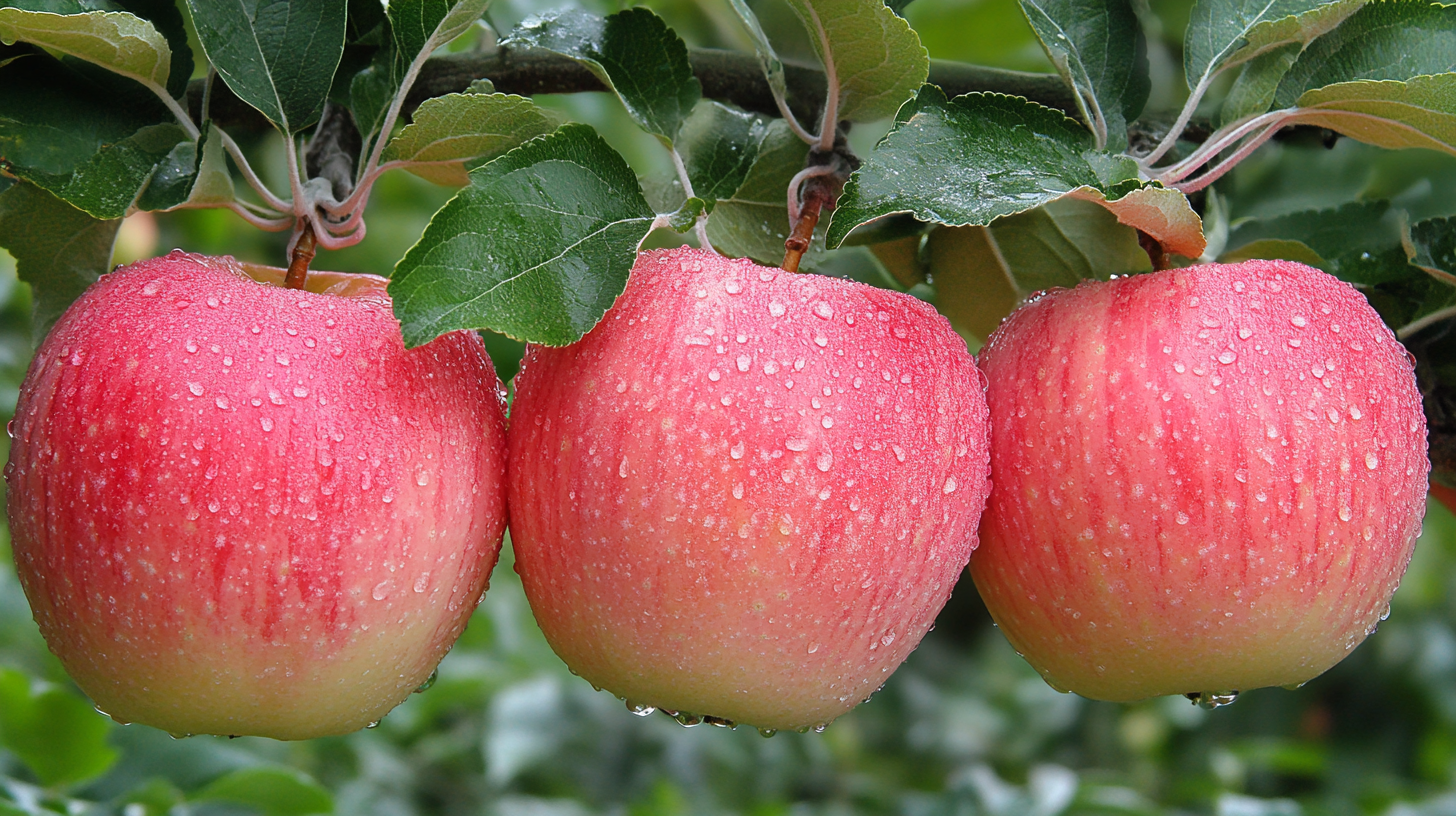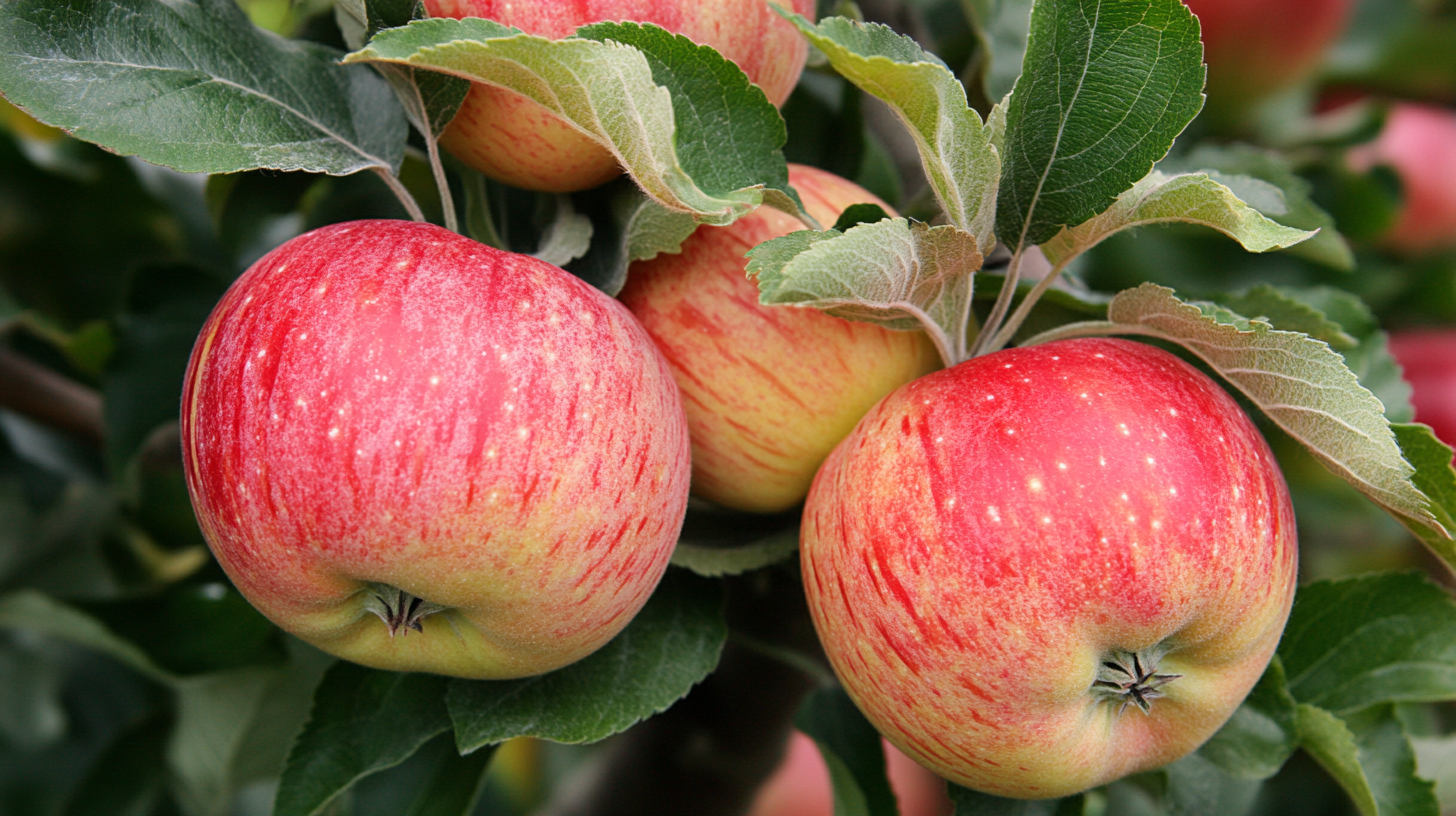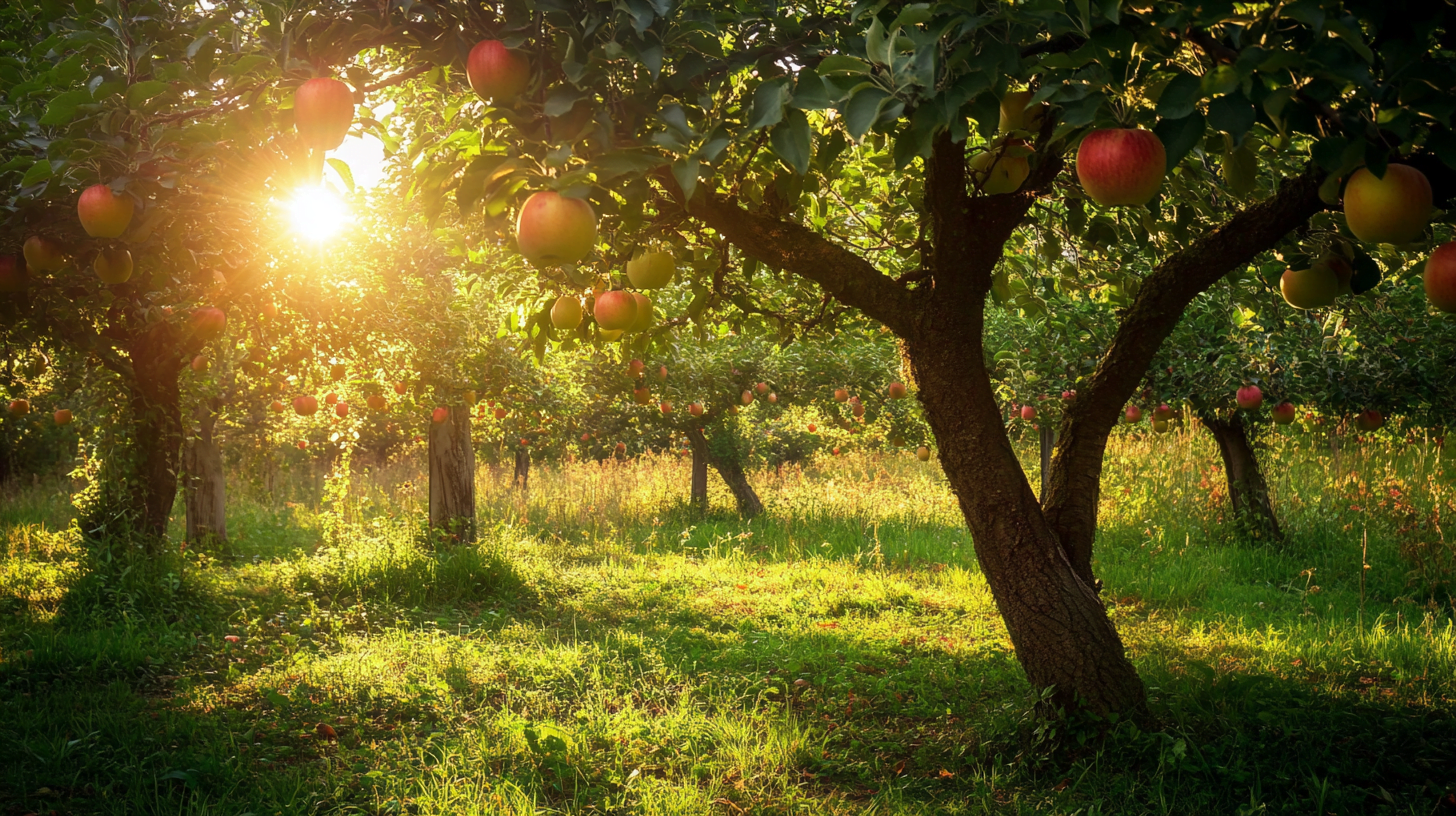Beautiful Plants For Your Interior
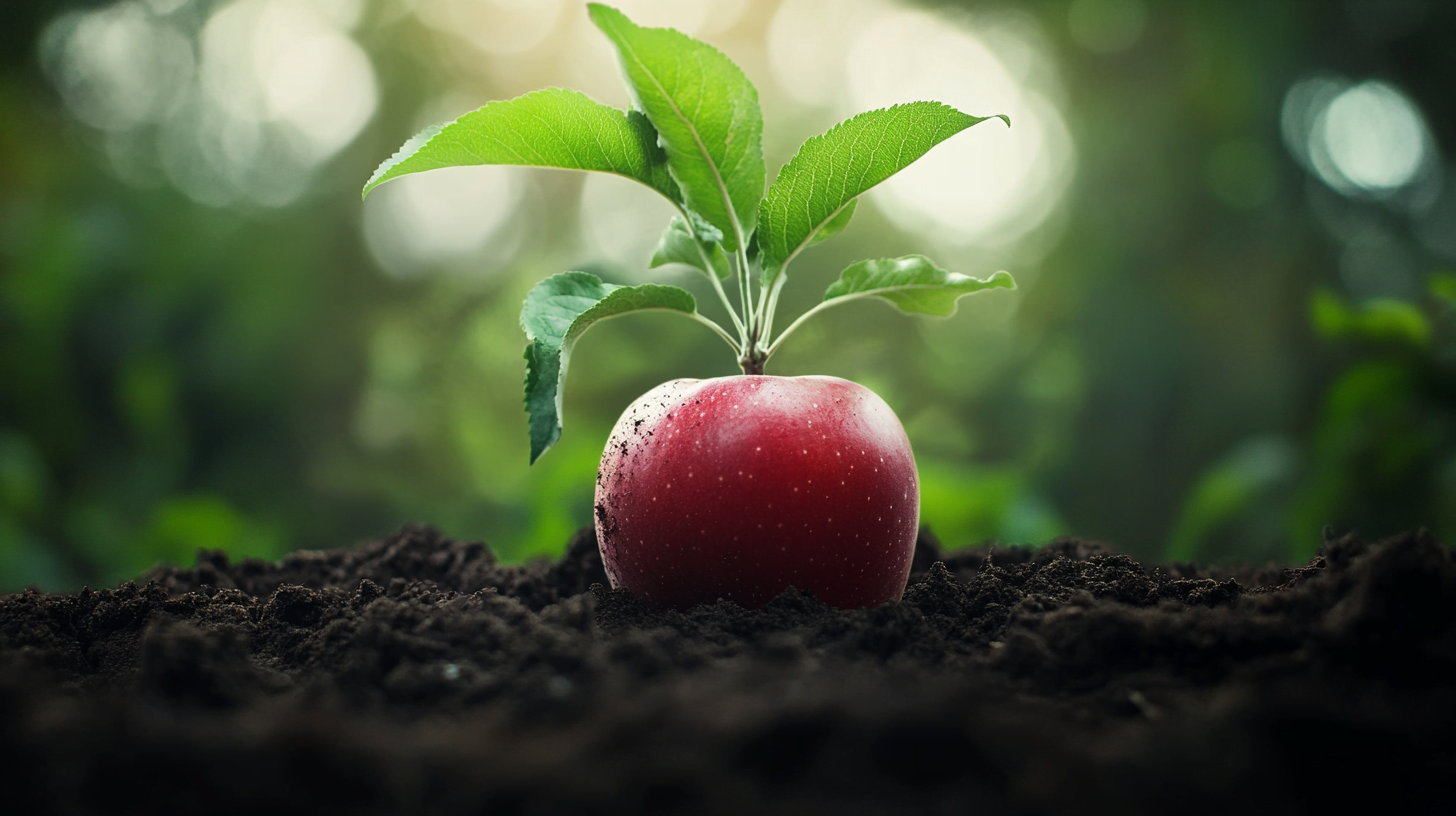
Table of Contents
Apple trees, with their crisp fruits and beautiful blossoms, are a favorite among home gardeners and orchardists alike. But if you’re dealing with clay soil, you might be wondering: can apple trees grow in clay soil? The short answer is yes, but it’s not without its challenges. In this comprehensive guide, we’ll dive deep into the world of apple trees and clay soil, exploring everything you need to know to successfully grow these delicious fruits in less-than-ideal conditions.
Understanding Clay Soil
Before we tackle the specifics of growing apple trees, let’s get our hands dirty with clay soil. Clay soil is characterized by its fine particles, which pack tightly together. This soil type has some unique properties that can both help and hinder plant growth:
Characteristics of clay soil:
- Dense and heavy
- Retains water well
- Rich in nutrients
- Slow to warm up in spring
- Prone to compaction
While clay soil’s ability to hold water and nutrients can be beneficial, its tendency to become waterlogged and compacted can spell trouble for many plants, including apple trees. But don’t lose hope! With the right approach, you can turn this challenging soil into a thriving environment for your apple trees.
Apple Trees and Their Soil Preferences
Apple trees, like most fruit trees, prefer well-draining, loamy soil with a pH between 6.0 and 7.0. They need soil that allows their roots to spread and access oxygen, water, and nutrients easily. Clay soil can make this difficult, but it’s not impossible.
Here’s a quick comparison of ideal soil vs. clay soil for apple trees:
| Soil Characteristic | Ideal Soil | Clay Soil |
|---|---|---|
| Drainage | Good | Poor |
| Aeration | High | Low |
| Nutrient retention | Moderate | High |
| Root penetration | Easy | Difficult |
| pH level | 6.0-7.0 | Often alkaline |
The Truth About Apple Trees in Clay Soil
Can apple trees survive in clay soil? Absolutely! In fact, with proper preparation and care, they can thrive. The key is to address the main challenges clay soil presents:
- Poor drainage
- Lack of aeration
- Compaction
Many gardeners have successfully grown apple trees in clay-rich environments by improving these soil conditions. It’s all about working with the soil you have and making strategic improvements.
Preparing Clay Soil for Apple Trees
Preparing your clay soil for apple trees is crucial for their long-term success. Here’s a step-by-step guide to get your soil apple-tree ready:
- Soil testing: Start by getting your soil tested. This will give you valuable information about its pH and nutrient content.
- Improve drainage: Add organic matter like compost, well-rotted manure, or leaf mold. This helps break up the clay and improve drainage.
- Amend the soil: Based on your soil test results, add any necessary amendments. This might include lime to adjust pH or specific nutrients your soil lacks.
- Create a planting area: Dig a hole twice as wide as the root ball but no deeper. Mix the removed soil with compost at a 50/50 ratio.
- Plant carefully: Place the tree at the same depth it was in its container, and backfill with your amended soil mix.
Remember, improving clay soil is an ongoing process. Continue to add organic matter each year to maintain and improve soil structure.
Choosing the Right Apple Tree Varieties for Clay Soil
Not all apple trees are created equal when it comes to tolerating clay soil. Some varieties are more adaptable than others. Here are a few apple cultivars that tend to do well in heavier soils:
- Bramley’s Seedling
- Egremont Russet
- Blenheim Orange
- Cox’s Orange Pippin
- Red Delicious
When selecting your apple tree, pay attention to the rootstock as well. Some rootstocks, like MM111 and M26, are more tolerant of heavy soils.
Caring for Apple Trees in Clay Soil
Once your apple tree is in the ground, proper care is essential. Here are some tips specific to growing apple trees in clay soil:
- Watering: Clay soil retains water, so be careful not to overwater. Water deeply but less frequently to encourage deep root growth.
- Fertilization: Clay soil is often rich in nutrients, so go easy on fertilizer. A slow-release organic fertilizer applied in spring is usually sufficient.
- Pruning: Regular pruning is crucial for air circulation and sunlight penetration, especially in clay soil where moisture can linger.
- Mulching: Apply a 2-3 inch layer of organic mulch around the tree, keeping it away from the trunk. This helps retain moisture and improve soil structure over time.
Troubleshooting Common Issues
Even with the best care, apple trees in clay soil may face some challenges. Here are some common issues and how to address them:
- Yellowing leaves: This could indicate poor drainage or nutrient deficiencies. Improve drainage and consider adding iron chelates.
- Slow growth: This might be due to compacted soil. Aerate the soil carefully around the root zone.
- Fungal diseases: These are more common in poorly-draining soils. Improve air circulation through pruning and consider using organic fungicides.
Long-term Soil Improvement Strategies
Improving clay soil is a long-term project. Here are some strategies to continue enhancing your soil over time:
- Use cover crops: Plant cover crops like clover or rye in the off-season to add organic matter and improve soil structure.
- Practice no-till gardening: Minimize soil disturbance to preserve soil structure and beneficial organisms.
- Add organic matter regularly: Each spring, add a layer of compost or well-rotted manure around your trees.
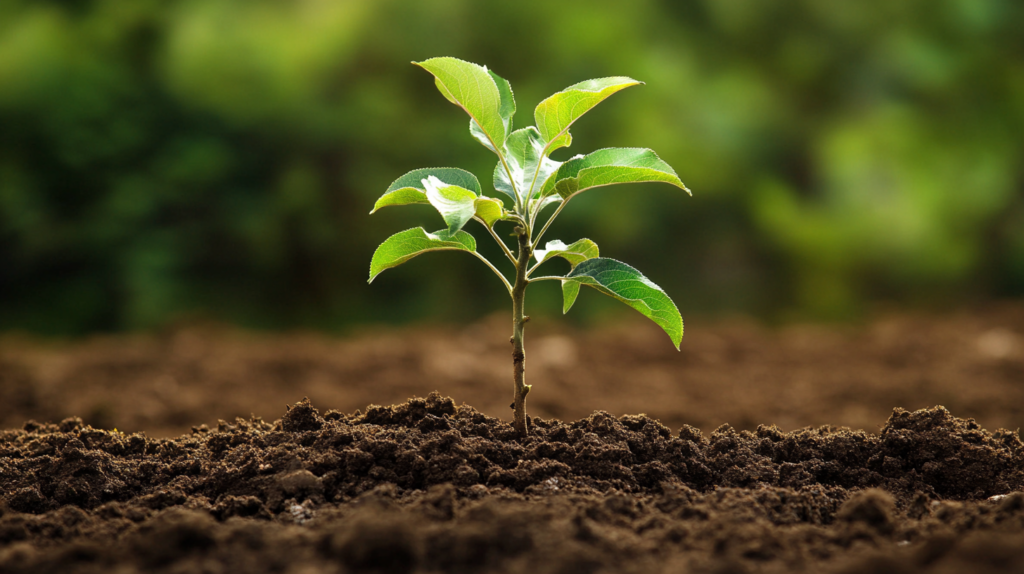
Conclusion: Can Apple Trees Grow in Clay Soil?
So, can apple trees grow in clay soil? The answer is a resounding yes! While it presents some challenges, clay soil can be transformed into a suitable environment for apple trees with proper preparation and ongoing care. Remember, the key is to improve drainage, add organic matter, and choose the right varieties. With patience and the right techniques, you can enjoy crisp, juicy apples from your own backyard, even if you’re starting with clay soil.
FAQs About Growing Apple Trees in Clay Soil
Q: How long does it take for an apple tree to bear fruit in clay soil?
A: Most apple trees start bearing fruit 2-5 years after planting, regardless of soil type. However, trees in clay soil might take a bit longer if growth is slower.
Q: Can I plant other fruit trees with my apple trees in clay soil?
A: Yes, many fruit trees can grow in clay soil with proper preparation. Just ensure each tree has enough space and that their care requirements are compatible.
Q: What’s the best time of year to plant apple trees in clay soil?
A: Late fall or early spring are ideal. Avoid planting in summer when clay soil can become very hard and dry.
Q: How often should I water my apple trees in clay soil?
A: Water deeply but less frequently. In clay soil, this might mean once every 7-10 days, depending on rainfall and temperature.
Q: Are there any natural ways to improve clay soil for apple trees?
A: Yes! Adding organic matter, using cover crops, and mulching are all natural ways to improve clay soil structure over time.
